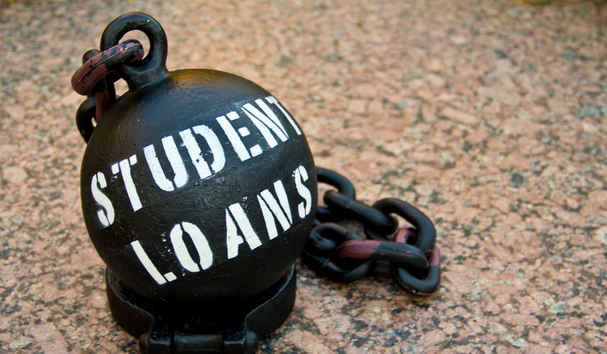CFPB Report Finds 90% Of Student Loan Borrowers Who Seek Co-Signer Release Are Denied
Last year, the Consumer Financial Protection Bureau brought our attention to a relatively new phenomenon in which more and more private student loan borrowers found themselves placed in automatic default – even if they were up-to-date on payments – when their co-signer died or filed for bankruptcy. While the agency and consumer advocates urged these borrowers to seek co-signer release from their lenders, a new report finds that’s simply hasn’t been possible.
In fact, nearly 90% of consumers who have applied for a co-signer release from their private student loan lender were rejected because of unfair industry practices.
That figure is based on the CFPB’s mid-year report [PDF] which analyzes more than 3,100 complaints and more than 1,100 debt collection complaints filed between October 2014 and March 2015 related to private student loans, as well as an analysis of lender policies and contracts.
As we know, the practice of employing a co-signer can often lead to lower interest rates on student loans, because the co-signer is on the hook to pay the loan if the borrower can not. Back in 2011, about 90% of all private student loans were co-signed, typically by a borrower’s parent or grandparent.
While many loan issuers advertise the option of releasing a co-signer from their obligations after a borrower meets certain requirements — often making a certain amount of on-time payments — consumers have reported it’s not an easy task.
The CFPB’s new report found that in most cases, consumers are left in the dark, receiving little information about specific borrower criteria that must be met to obtain a co-signer release.
Many consumers reported being confused about their eligibility for obtaining a co-signer release as well as not understanding why they had been denied.
In a previously reported instance, one borrower told the CFPB that at the time of origination, the lender stated they could release his co-signer after he made 28 on-time payments. However, after making those payments, the borrower learned that 36 payments were required. After making the additional payments, he was told that 48 payments were now required.
In other instances, borrowers reported that required forms were not available on websites or in electronic form.
According to the new report, many lender policies can permanently disqualify borrowers from co-signer releases.
The CFPB found that that some companies’ policies penalize or disqualify borrowers who prepay their loans and are in good standing. Additionally, some companies also disqualify borrowers from releasing a co-signer if the consumer accepts the servicer’s offer of postponing payment through forbearance
“These company policies can permanently ban a consumer from seeking co-signer release for the life of the loan and penalize consumers that may have graduated during tough economic times,” the report states.
The inability to obtain a release can pose significant financial risk for both the borrower and co-signer.
For one thing, borrowers have increasingly been hit with a default because of activities related to the co-signer, even if the borrower is paying on time.
Being placed in default is often the result of a death or bankruptcy filing related to a loan co-signer. This devastating situation is the result of a small but poisonous provision that permits the lender or loan servicer to place a loan in default, or accelerate the full balance of the loan.
While some lenders vowed they would discontinue the use of such automatic-default clauses, the CFPB’s analysis of private student loan contracts found that most private student loan contracts continue to include auto-default clauses.
In addition to finding the continued use of automatic-default clauses, the CFPB found other potentially harmful clauses hidden in fine print of some loans including “universal default” clauses.
Many financial institutions use these clauses to trigger a default if the borrower or co-signer is not in good standing on another loan with the institution, such as a mortgage or auto loan, that is unrelated to the consumer’s payment behavior on the student loan. These clauses can increase the risk of default for both the borrower and co-signer.
Speaking of the co-signer, the CFPB reports that the student loan will appear on their credit record, which will then count toward their total debt level. This can affect the co-signer’s credit score if the loan is not repaid.
If this occurs, the co-signer may also have a more difficult time obtaining an affordable rate on other credit, making it more expensive to refinance a home or to buy a car.
Along with releasing its mid-year report, the Student Loan Ombudsman provided several ways in which the private student loan industry could improve their co-signer practices including:
• Improving transparency around co-signer release criteria: Consumers and industry would benefit from increased transparency around the availability of co-signer release, including what specific requirements exist that a borrower needs to meet to obtain a release.
• Improving consumer notifications for co-signer release eligibility: Private student loan servicers could notify consumers before placing them in a repayment status, such as forbearance, that it would disqualify them from co-signer release. In addition, private student loan servicers could improve their customer service by proactively notifying borrowers when they meet prerequisites for releasing a co-signer, such as making a certain number of on-time payments.
• Examining potentially harmful clauses in the fine print: The CFPB report notes that policymakers should consider whether auto-default, universal default, and other potentially harmful terms in the fine print of private student loan contracts are appropriate.
Want more consumer news? Visit our parent organization, Consumer Reports, for the latest on scams, recalls, and other consumer issues.


